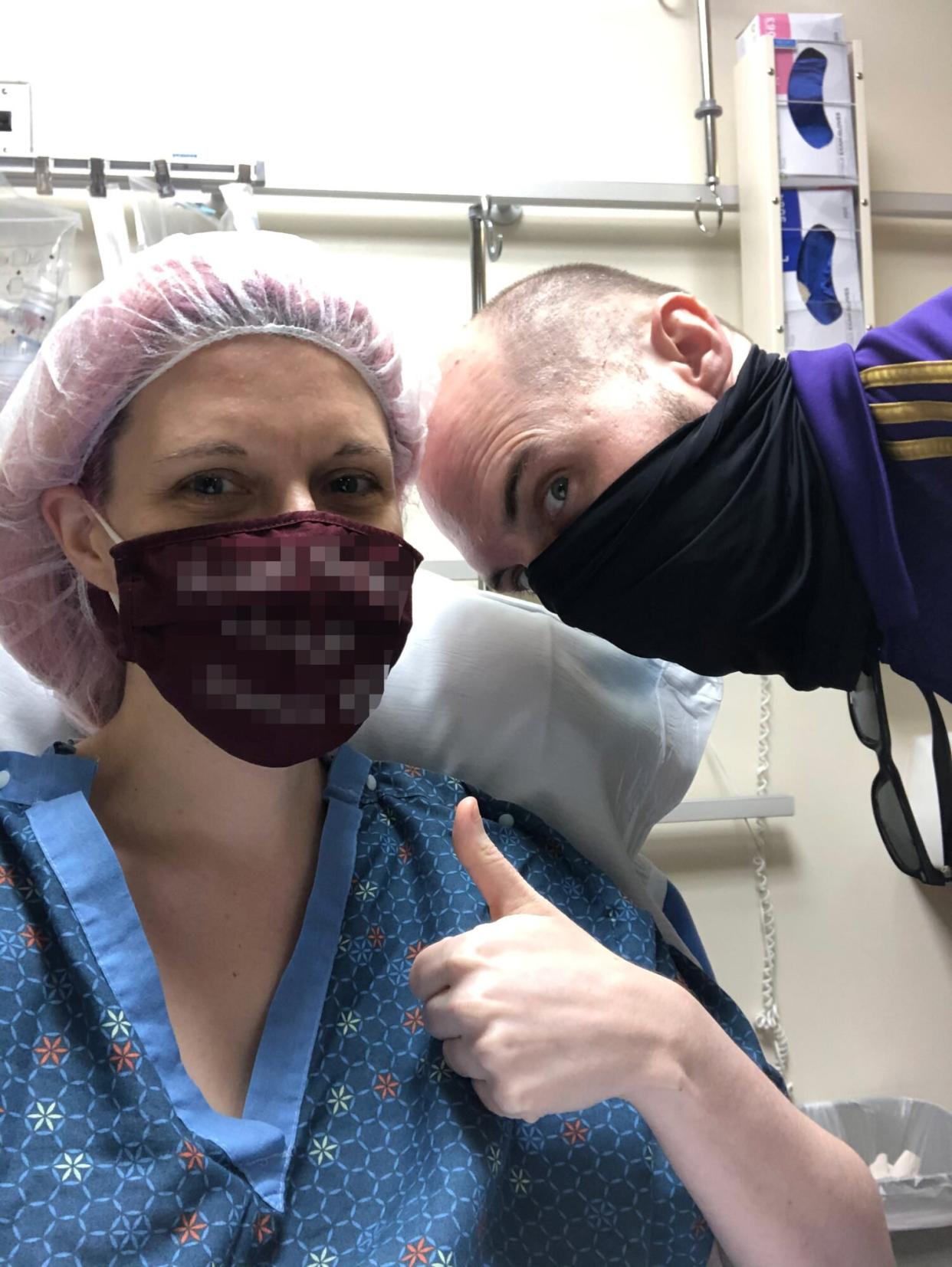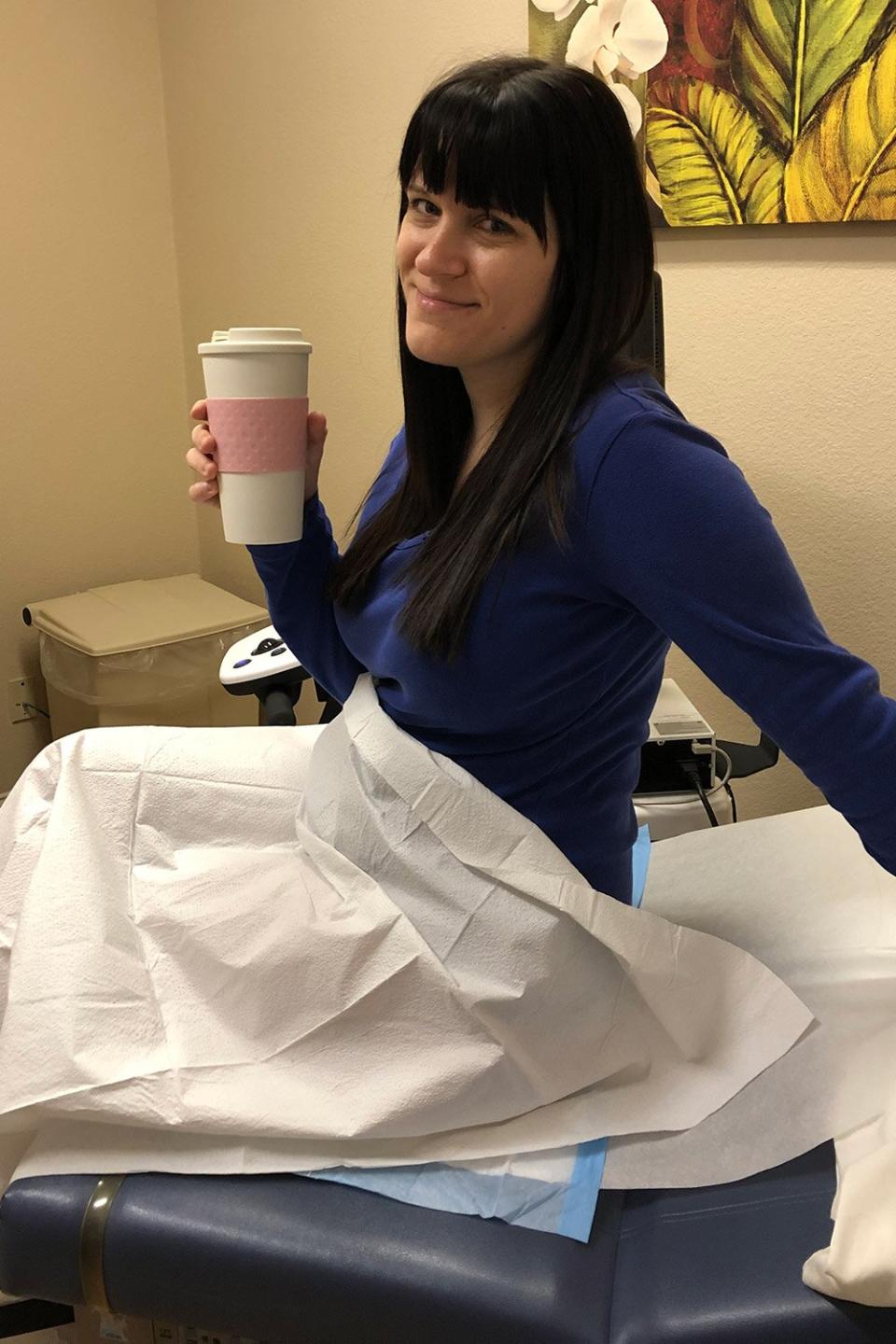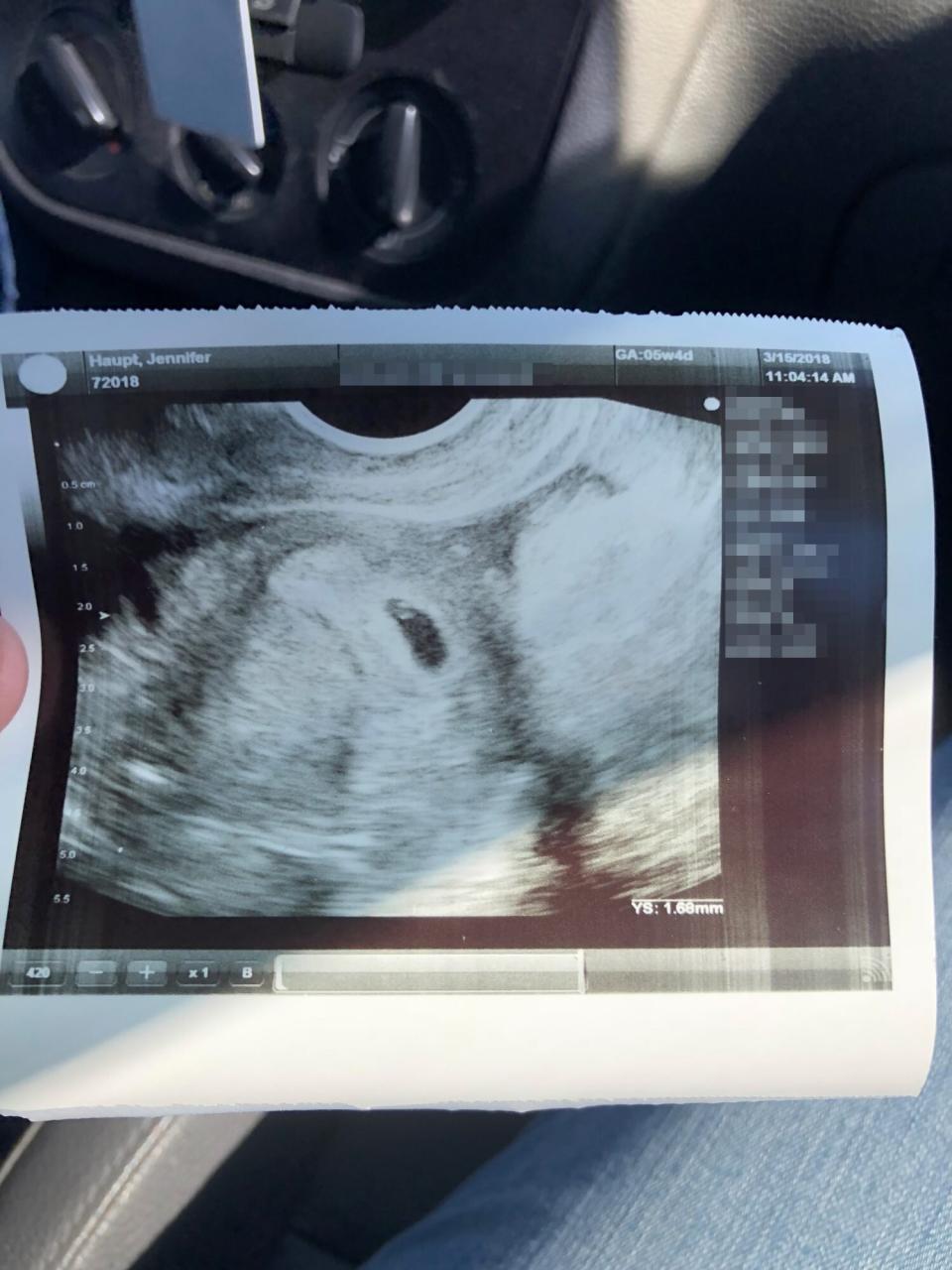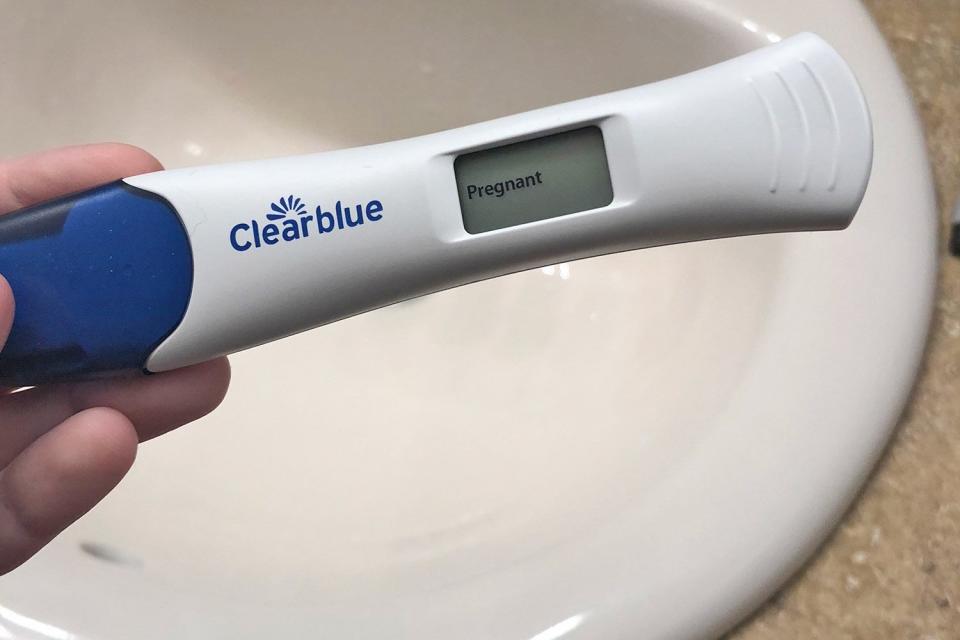Why I Chose to Have a Medical Abortion — Twice — While Struggling with Infertility for Years

Jen Juneau
The first time I had an abortion was also the first time I felt like a mom.
It was February 2018 — a year and a half after my husband and I began trying to conceive our first child. I was finally pregnant and overjoyed, after our third intrauterine insemination.
Unfortunately, when I was about eight weeks pregnant, our doctor never found the heartbeat we'd been hoping for, and there was no fetal growth from our previous appointment. Diagnosis? Early miscarriage.
He gave me the option to take a pill to pass the tissue on its own, have a dilation and curettage (D&C) procedure or "wait it out." I'd already done enough of the latter in trying to get pregnant in the first place and didn't see as a viable option for my own sanity, not to mention the fact that complications like septic shock can occur from retained fetal tissue.
I chose the pill.
But despite a night of writhing on the floor in my bathroom in pain all while wondering why my body had failed me after I'd finally gotten over the initial hump of getting pregnant at all, I had to get the D&C — which, as many may not realize, is technically a type of abortion — anyway. The pill had failed.

Jen Juneau
RELATED: We Had to End My Daughter's Life at 23 Weeks, but I Didn't Realize I Had an Abortion
On the day of the surgery, I was able to go in with a mostly clear head and looked at the procedure as a medical one, which physically, it was. I didn't associate what was happening inside my body with losing a baby, per se, because it wasn't a baby yet. My husband and my mom were both with me in the pre-op room, and I was making jokes to distract myself from the reality.
Then the anesthesiologist handed me a pen and asked me to sign a consent form. I initialed next to each boilerplate line, then got to the bottom where there was a line for a full signature, labeled "MOTHER." Without a second of hesitation, I turned to my own mom and said, "Here, you need to sign this."
Awkward silence. Then someone — I can't remember if it was my husband or my mom (definitely not the anesthesiologist, who was suddenly interested in the overhead light fixture) — said gently, "Honey, that means you."
That was when I finally lost it, and allowed myself to consider, for a brief moment before going under anesthesia, what could've been.
Never miss a story — sign up for PEOPLE's free daily newsletter to stay up-to-date on the best of what PEOPLE has to offer, from juicy celebrity news to compelling human-interest stories.

Jen Juneau
According to Mayo Clinic, a medical abortion can be used "to complete an early miscarriage or end an unwanted pregnancy."
I had to do this twice — the first time, with the pill that still ended in a D&C, and the second a year later, with just the pill, which ended up being successful on its own — but in my case, these pregnancies were both very much wanted and the fallout was full of emotion.
In the wake of the U.S. Supreme Court's recent Roe v. Wade decision to no longer protect the right to an abortion at the federal level, so many debates have come up that have questioned which cases of abortion should be permitted.
Those who are against the freedom of choice and argue about a right to life like to point out that it's "not the baby's fault they were conceived." But when pro-choicers bring up such concepts as rape and incest — often in conjunction with victims who are minors — as potential exceptions, anti-choicers seem to reconsider the idea of all abortion as murder, or at least suddenly not give the concept of murder as much weight.
So the main question I keep asking anti-choice activists who tout the innocence of all life is, "Does the 'reason' behind the abortion really make any difference as to that innocence?"
RELATED VIDEO: Roe v. Wade Overturned by SCOTUS: "We Can Only Talk About What Roe v. Wade Protected, Past Tense"
Unlike so many who struggle with infertility, my story ultimately had a happy ending. When I finally got pregnant again via in vitro fertilization — my 10th fertility treatment total — with the baby girl I'd so desperately wanted for four years, I listened to her heartbeat every day. To this day, even though she is about to turn 1, I still make sure she's breathing in her crib every night before I go to sleep. I have a feeling I'll be doing this until she's 18 and maybe even into her adulthood, unless she gets alarms installed at her house (which, obviously, I'll insist on).
An acquaintance of mine once asked me how I could be pro-choice, after everything I went through to have my daughter. The answer is so simple: My life is not everyone else's, and how I live it and the choices I have made and will make are not anyone else's burden.
Anybody who has been through ectopic pregnancies or subchorionic hemorrhages will know, the choices aren't always so simple but the situations are always terrifying. I went through the latter with my daughter. It was the scariest moment of my life so far: There was bleeding, and the ER paperwork ominously referred to a "threatened abortion." (Ultimately, the hemorrhage — common for IVF patients — cleared up on its own by eight weeks and everything was okay. The appointment to check if everything was okay, in fact, was the first time we ever heard a heartbeat. It was the best surprise, and one of the most memorable moments of my life so far.)
In my case, the choice to undergo an abortion (twice) was an emotional one — and a choice I made knowing the fetus would not survive. For many others, it is not. Both ways are okay, and no one else's business except the person getting the abortion, their doctor and if they choose, their partner.

Jen Juneau
I am choosing to share my story today for one reason: to bring awareness to the different situations that the many, many people who make this choice have found themselves in. Abortion is a medical procedure that every person should be able to choose for themselves.
The biggest thing I have really learned about abortion, through my own experiences and listening to the stories of others, is that you don't really know what choice you would make until you have to make it. But no matter what the choice is, you should be allowed to make it, without having to conform to anyone else's ideals about what reason is "good enough."

 Yahoo Movies
Yahoo Movies 
